In mid-export season, Stefan Bitlan, sales manager at Fani, a fruit exporter in Moldova, is satisfied with the reputation the country's plums have built since 2017. "The market is stable, and there's demand," he begins. "We, however, can't repeat last season's success. We're exporting a quarter less plums simply because about a third less was harvested. Poor pollination and then heat and drought are to blame."
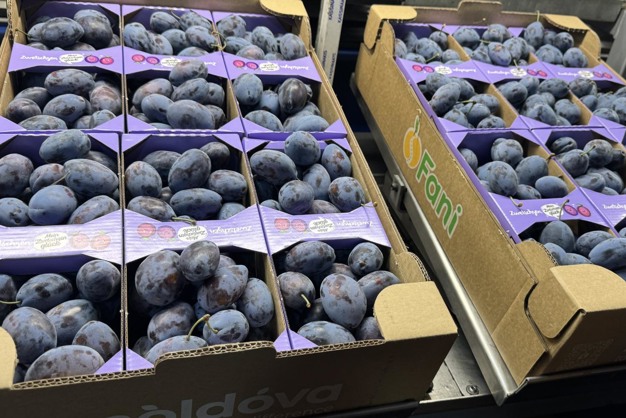
Plums for the German market
This year, picking the Stanley variety started on 6 August, more than three weeks earlier than the usual 1 September. "But, we couldn't go to market yet because Serbia, Macedonia, and Bosnia and Herzegovina had ample harvests of excellent quality and large sizes they could sell at low prices on the European market. A fellow exporter there told me it was the best harvest he'd ever recalled in the Balkans. If you pick 35 tons per hectare, you can easily drop your price per kilo to about €0.65. We'd make substantial losses at that price since fixed costs are even higher in a year of low average yields per hectare," says Stefan.
Summer trouble
The early plum and late apricot varieties, picked in late July, suffered greatly under the continuous 40+ °C temperatures. That is about 10 °C higher than normal. That and a high sugar content turned these fruit's flesh brown. That summer trouble was most prevalent among the small Stanley plums. "This variety's quality is top-notch."
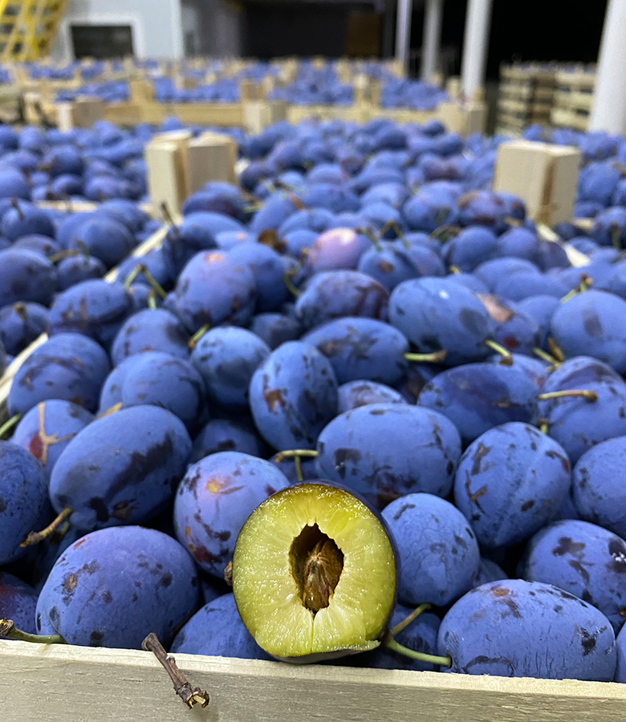
"Although, of course, partly due to poor pollination, there is 30% less harvest. Even where orchards were irrigated, the problem of small size was noted. The heat hampered growth. I, therefore, see climate change as one of the biggest challenges for Moldovan fruit growing and exporting. As for the early varieties, they couldn't be exported. They were diverted to bakeries; we lost a lot of money on that," Stefan explains.
Good sorting is a must this year
Exports are still running, but according to Bitlan, they are only serving their most loyal customers. Last year, Fani shipped 8,000 tons of fruit abroad. "By now, every supermarket chain in the EU knows Moldovan plums, and everyone wants to work with us. Over the past five years, thanks to our favorable sales window and the fruit's quality, we've managed to push prices up."
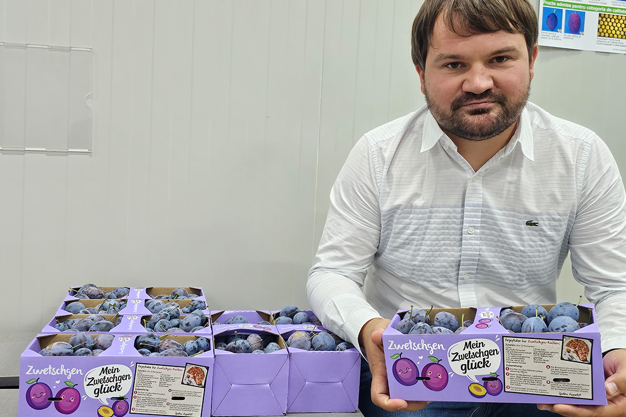
Stefan Bitlan showing plums ready for export
"To maintain consistency in quality, starting this season, we're calling on the services of PDG Fruct. They have a sorting line that detects internal quality and a punnet packing line. Quality sorting is a must this year because there are too many problems like soft fruit, cracking, and double plums. Last year, when the weather was cooperative during pollination, growth, and harvesting, such exhaustive controls were entirely unnecessary," Stefan recalls.
Since 2021, Fani has exported most of its plums to a major German retailer. Stefan was lucky enough to be introduced to the supermarket chain through a World Bank project. "In August 2021, I visited to see how they packaged Serbian plums. I wanted to learn. If you have the Western European market in mind, you can't rely solely on your product's quality and flavor; presentation is at least as important. In September, I started sending the first trucks."
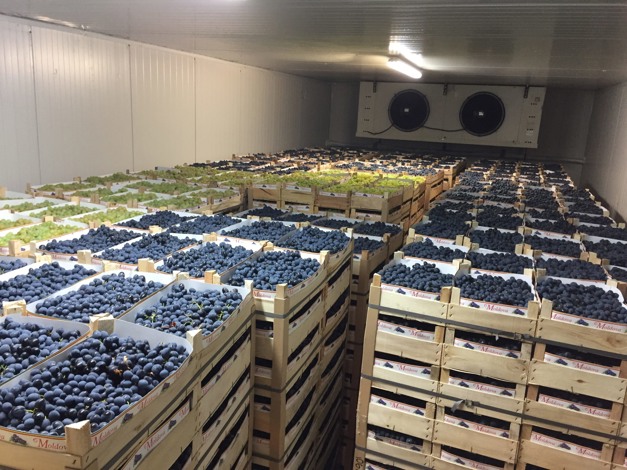
Fani also exports other fruits like grapes and apricots
Strong together
Fani sources its fruit from some 150 growers. A traceability system ensures every crate can be traced back to its grower and harvest date. "If I have a bad experience with a particular grower and don't see a willingness to take corrective action, I take them off my list. We're now forming a group of growers that we're helping with all kinds of things, from cultivation issues to certifications and packaging. We want a group of 15 professional growers. After all, together, we're much stronger," Stefan reckons.
In 2022, Russia banned Moldovan fruit, and many small-scale growers, of especially apples and grapes, were ready to give up. They had lost their historic market and, thus, had few prospects. The sales manager, however, managed to encourage them. He promised them he would find a market for the fruit from their orchards. The project, thus, grew a bit. "It's fair to say we had a certain social impact. And, obviously, vice versa; they help me because, without suppliers, I'm nothing," admits Stefan, whose company is GlobalGAP and GRASP certified.
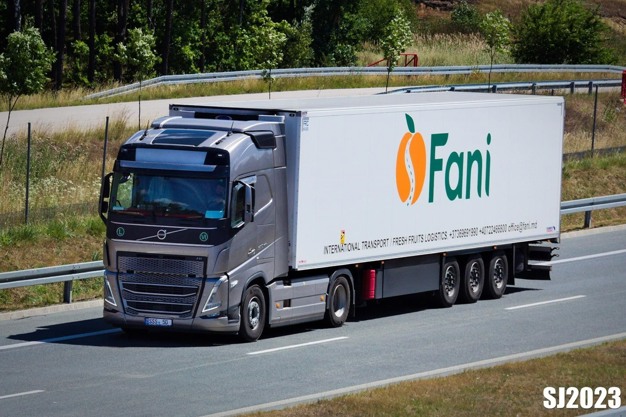
Transport company
As a fruit exporter, Fani controls cultivation, packaging, sales and even manages transportation. "We have a fleet of 24 trucks, including a dozen brand-new vehicles. We transport some of the fruit ourselves while some go out in trucks from a friend's transport company. They also make sure our trucks don't return empty. Often, they're loaded with fruits and vegetables in the Netherlands or with bananas in the port of Koper (Slovenia) or Hamburg (Germany)."
As for logistical movements, Stefan has a request for Moldova's government. "We don't want subsidies or money, we just ask for efficient document flow handling. If you need a phytosanitary certificate for shipment on Saturday, you have to request it on Thursday. It's not unusual to wait up to 48 hours at the Romanian border to pass through customs. That, while there's certainly no shortage of border staff to handle everything immediately. A little more efficiency would be most welcome," concludes Stefan.
 For more information:
For more information:
Stefan Bitlan (sales manager)
Fani Ltd
43 Alecu Russo Street
4829 Magdacesti (Criuleni) - Moldova
Mob: +373 6969 1990
Mob: +40 722 466 800 (Romania)
[email protected]
www.fani.md
